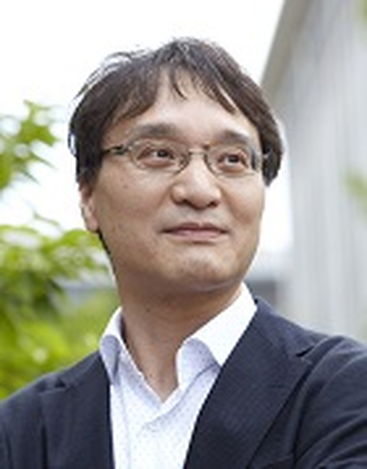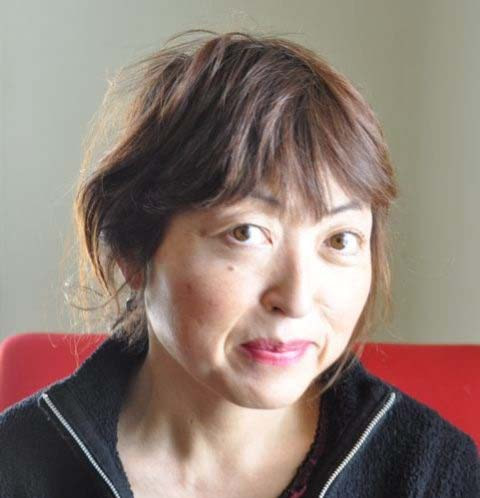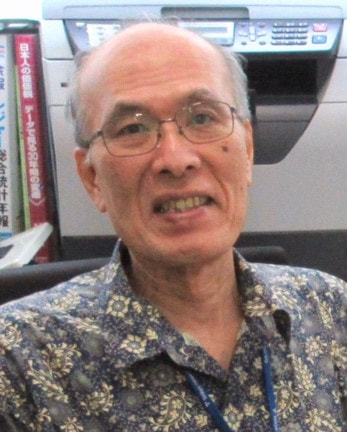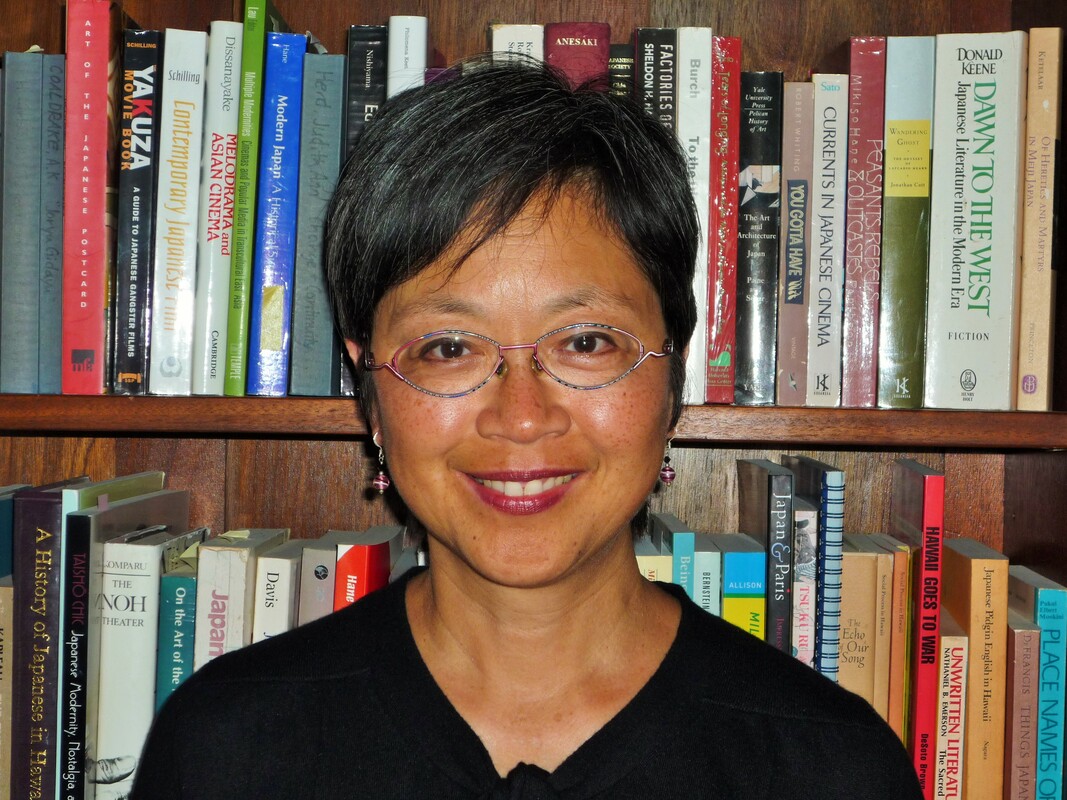Keynote Speakers - CTS 2020
Tazim Jamal
|
Professor Jamal’s primary research interests lie in the areas of sustainable tourism, heritage tourism and collaborative tourism planning. Among other publications, she is the co-editor of The SAGE Handbook of Tourism Studies (2009), and the author of Justice and Ethics in Tourism (2019, Routledge) She is on the editorial board of nine peer-reviewed journals. Prof. Jamal’s latest book of Justice and Ethics in Tourism (2019, Routledge) explores some key ethical perspectives and approaches to justice, including building capabilities, distributive justice, recognition, representation, and democracy. Human rights, integral in the context of tourism, are discussed throughout. Space is also given to structurally embedded injustices (including those related to historical racism and colonialism), responsibility toward justice, justice within and beyond borders, and justice in the context of sustainability, governance, policy, and planning.
|
Hideki Endo
|
Hideki Endo is Professor of Tourism Studies in Faculty of Letters and Executive Director of the Institute of Humanities, Human and Social Sciences at Ritsumeikan Univeristy (Kyoto of Japan). He is also Vice President of Kinugasa Research Organization to manage and support Research Institutes and Research Centers in Ritsumeikan University. Hideki Endo is Editor in Chief of “Tourism Studies Review” published by Japan Society of Tourism Studies, and served on the Editorial Board of “Asian Journal of Tourism Research” which was one of international academic journals of tourism studies. He has a wide range of research interests in Sociology of Tourism, and has published many books and research articles on various aspects of Sociology of Tourism, including “the authenticity in tourism”, “tourist gaze and performances” and “the relationships between tourism and media culture”. His current research interest focuses on Tourism Mobilities, especially the relationships between tourism, mobilities and digital revolution. Professor Endo is now considering the emergence of “Mobile and Digital Society”.
|
Kumi Kato
|
Kumi Kato, PhD is the director, Center for Tourism Research, and a professor at Faculty of Tourism/Graduate School of Tourism, Wakayama University, Japan. Her research areas include community resilience, spiritual heritage, tourism ethics and sustainability indicator development, working closely with communities nationally/internationally, and also serving in international advisory roles, including as a WTTC Tourism for Tomorrow evaluator. She chaired the advisory committee for the sustainable tourism base survey at JTA.
Before returning to Japan, Kumi worked in Australia for 24 years, starting with teaching languages at secondary schools and a business school, and training teachers of foreign languages. She gained a Master degree in Environmental Management & Education at the School of Environmental Sciences, Griffith University and a doctorate from the University of Queensland. She also has a Master in Applied Linguistics (Intercultural Communication). Her research focuses on human ethics seen in various human-nature interactions, most strongly manifested in traditional forms of natural resource use – e.g. fisheries, agriculture, forestry. She believes an ethics for sustainability is held by those who live with the undeniable reality of human life – reliance on other lives and vulnerability in nature. Hunters and fishers exposed to natural elements solely rely on their physical strength, for example, but carry a sense of the ‘raw ethics’ of being human. Belief in creativity (in thinking, expression) has led her to complete several creative works – e.g. a radio documentary on women divers in Japan, a film on a Tasmanian forest, public art in three sites in Australia (e.g. a Sound Garden), and ‘150 sounds of Queensland’. She is particularly interested in sound art and soundscape, as sound allows a sense of space and temporality that embodies connection, or lack thereof, with the surrounding environment. All her creative works have thus featured sound. Creative expression not only allows us to express (invisible, intangible) human ethics and spirituality, but also to communicate research outcomes to society at large beyond academic circles. That, in itself, is an expression of research ethics – an obligation to return the benefits of research to participants and collaborators. |
Tony Wheeler
|
A trek along Asia's 'hippie trail' in 1972 led to Tony and Maureen Wheeler creating travel publisher Lonely Planet, and to the New York Times describing him as 'the trailblazing patron saint of the world's backpackers and adventure travelers'. Wheeler has been involved with the Planet Wheeler Foundation's work on more than fifty projects in the developing world and the establishment of Melbourne's Wheeler Centre for Books, Writing and Ideas. Melbourne University Press (MUP) published Tony’s latest book On Travel in 2018. His next book, Islands of Australia (National Library of Australia) will be published in 2019. His enthusiasm for trekking the globe is contagious: it is impossible to read On Travel without scouring for deals, searching for unusual places, and deciding to leave the luggage behind in an escape to the unfamiliar.
|
Shinji Yamashita
|
Shinji Yamashita is Emeritus Professor of Cultural Anthropology at the University of Tokyo, Japan. His research focuses on tourism in the globalized world from the anthropological point of view. His works include Tourism and Cultural Development in Asia and Oceania (co-ed. with Kadir H. Din and Jerry S. Eades), Malaysia National University Press, 1997; Globalization in Southeast Asia: Local, National, and Transnational Perspectives (co-ed. with Jerry S. Eades), Berghahn Books, 2003; Bali and Beyond: Explorations in the Anthropology of Tourism (translated by J.S. Eades), Berghahn Books, 2003; “Transnational Migration of Women: Changing Boundaries of Contemporary Japan,” Nelson H. H. Graburn, John Ertl, and R. Kenji Tierney eds. Multiculturalism in the New Japan: Crossing the Boundaries Within, Berghahn Books, 2008; “Southeast Asian Tourism from a Japanese Perspective,” Michael Hitchcock, Victor T. King and Michael Parnwell eds. Tourism in Southeast Asia: Challenges and New Directions, NIAS Press, 2009; “A 20-20 Vision of Tourism Research in Bali: Towards Reflexive Tourism Studies,” Douglas G. Pearce and Richard W. Butler eds. Tourism Research: A 20-20 Vision, Goodfellow Publishing, 2010; “Global Touristscapes in a Rainforest: Ecotourism in Sabah, Malaysia,” Cathy H. C. Hsu and William C. Gartner eds. The Routledge Handbook of Tourism Research, Routledge, 2012; “Tourism,” International Encyclopedia of the Social & Behavioral Sciences, Second Edition, Elsevier, 2015; “The Balinese Subak as World Cultural Heritage: In the Context of Tourism,” I Nyoman Darma Putra and Siobhan Campbell eds. Recent Developments in Bali Tourism, Buku Arti, 2015; “Disaster and Tourism: Emerging Forms of Tourism in the Aftermath of the Great East Japan Earthquake,” Asian Journal of Tourism Research 1(2), 2016.
|
Christine Yano
|
Christine R. Yano, Professor of Anthropology at the University of Hawai`i, has conducted research on Japan and Japanese Americans with a focus on popular culture. Her publications include Tears of Longing: Nostalgia and the Nation in Japanese Popular Song (Harvard, 2002), Crowning the Nice Girl; Gender, Ethnicity, and Culture in Hawaii’s Cherry Blossom Festival (Hawaii, 2006), Airborne Dreams: “Nisei” Stewardesses and Pan American World Airways (Duke, 2011), and Pink Globalization: Hello Kitty and its Trek Across the Pacific (Duke, 2013). During 2014-2015, she served as Visiting Professor of Anthropology at Harvard University, resulting in a book project with Asian American undergraduates there entitled Straight A’s: Asian American Academic Achievement. Her current research project focuses on the transnational circulation of the Hawaiian-Portuguese `ukulele, as instrument and source of music-making in Japan. She currently serves as President-Elect of the Association for Asian Studies, and will become President in March 2020.
|





